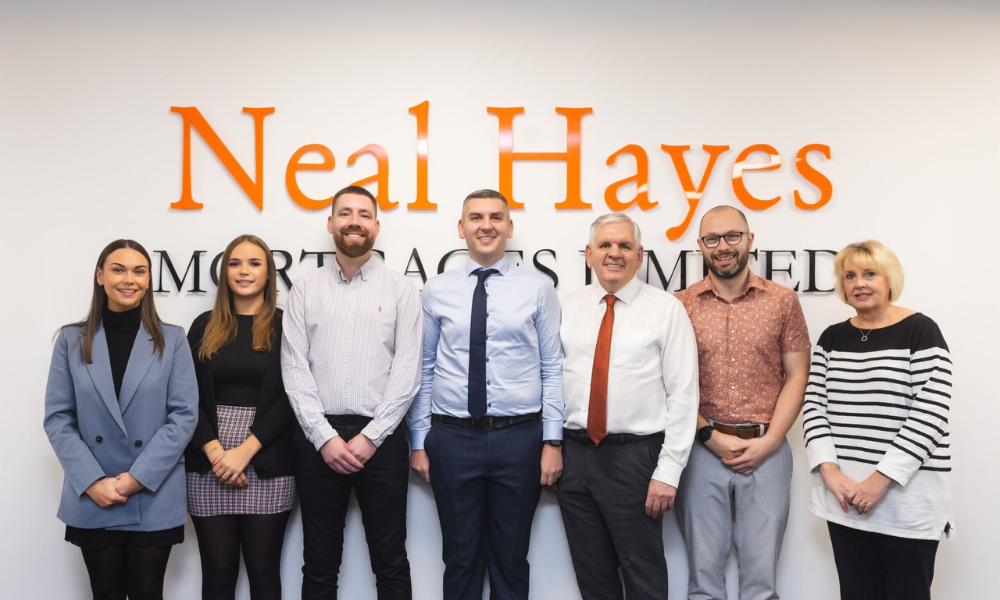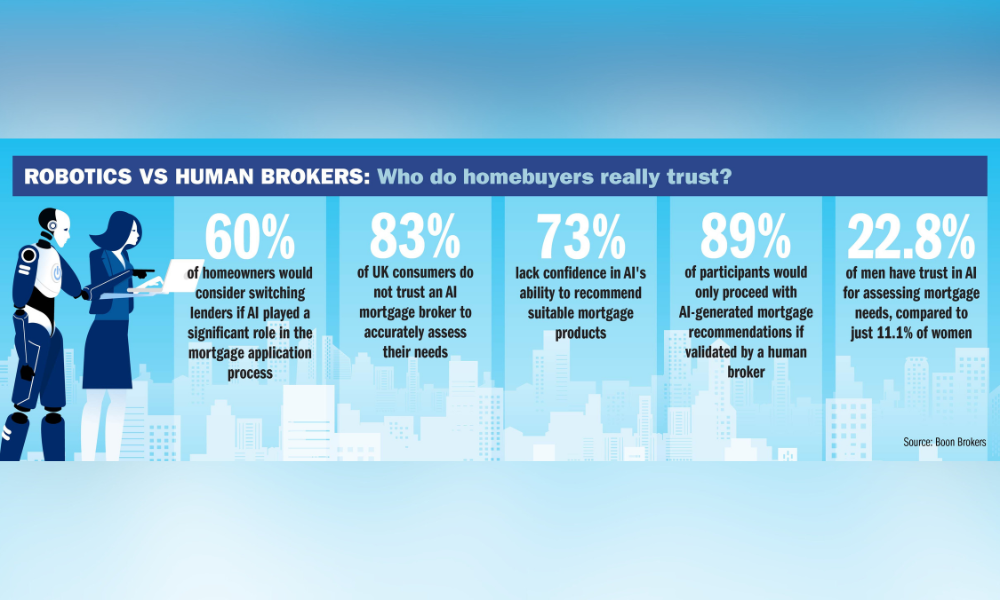"I almost exclusively just do face-to-face advice," he says

A staggering 83% of UK homeowners say that they don’t actually trust AI to accurately assess their individual mortgage needs, according to new research from Boon Brokers. Despite this, Dannie Maw data shows that 22% of brokers are trialling AI in some form in their internal processes.
In the face of increasing sector digitalisation, some brokers are taking a stand against the robo-revolution and placing more onus on face-to-face interactions. Speaking to Mortgage Introducer, Michael Hayes (pictured), of Neal Hayes Mortgages, said that meeting clients in person is not just a preference but a cornerstone of his business strategy.
“I almost exclusively just do face-to-face advice,” he said. “And when I say face-to-face advice, I don’t mean Zoom or Teams. Instead, I'll go meet them in their home on an evening between Monday and Friday – so it’s very time consuming for me. But, we've always done it this way and the relationship you build up with clients is absolutely indispensable.”
 And, despite the growing push for technology-driven solutions, Hayes is steadfast in his belief that most clients prefer a human touch when making major financial decisions.
And, despite the growing push for technology-driven solutions, Hayes is steadfast in his belief that most clients prefer a human touch when making major financial decisions.
“I remember going to our network conference once, and they made this massive issue about robo-advice, online advice,” added Hayes. “But I honestly believe most customers don’t want that. They want someone to sit down with them. We're probably the only people that clients will ever see in a year to talk about their finances so they don't mind that if you're going to come and see them at 6pm at night for an hour. They really don't mind giving up part of their Wednesday evening if you're going to sit and go through the process with them.”
Because for Hayes, he believes that for the younger generation – despite their love of tech - they still crave a face-to-face, personalised process. And the research certainly chimes, with 56.9% of individuals aged 18-24 expressing mistrust over AI in the process.
“I honestly don't believe the next generation of customers just want to do it all over a little form online or sit and talk to them on the phone for an hour,” added Hayes. “I retained 93.5% of my customers last year - the industry average is 30% - and I think that's all because I've spent time upfront getting to know people, building relationships from the start. Because then you become the mortgage broker for that family - they would never use anyone else and they pass you on to people. Once you've got to know those people, they're very loyal because hopefully they're happy with the job you've done.”
Hayes’s approach is particularly relevant given the recent changes in mortgage affordability due to Bank of England interest rate adjustments. These shifts have forced clients to recalibrate their expectations, particularly first-time buyers.
“I think they are resetting the expectations of what a first-time buyer would typically buy for their first house,” Hayes added, noting a trend toward smaller properties. He mentions specific lender programs, such as Nationwide’s Helping Hand, that can stretch affordability for buyers with higher incomes.
Understanding lenders’ criteria is another area where brokers need to practice what they preach. For instance, Hayes told Mortgage Introducer that he recently helped a self-employed client in the CIS contractor scheme secure a loan based on an income of £60,000, despite the client’s declared self-employed earnings being much lower.
“Sometimes, if you get to know your customers a bit more, you can find if there is extra income somewhere that we can use,” he told Mortgage Introducer. “We've noticed that clients may be looking for smaller properties than they used to do. In 2021, someone would tell you I'm buying a four bed new build for my first home - now I can't remember the last time I heard that. It's people looking for two bed terraces or maybe a three bed semi for their first home. They’re resetting the expectations of what a first time buyer would typically buy – and I think [it’s down to] the changes the government's made. You'll see a lot of landlords selling those properties you’d associate with a regular first time buyer's house.”
Beyond affordability, Hayes is vocal about the systemic issues affecting the housing market, such as the scarcity of starter homes. He told Mortgage Introducer that developers and policymakers are focusing on larger, more profitable homes, leaving first-time buyers with limited options.
“Something needs to be done with the government and the developers,” he added. “When developers are buying land, I think the government should put restrictions on how many certain types of homes have to be built. Obviously it has to be profitable for developers, but there needs to be something [done] because nobody builds any bungalows - that's a massive issue. You’ve got older people wanting single storey properties because they have mobility issues.”
Hayes also sees a need for more innovation among lenders to address the widening affordability gap. However, he warns against repeating past mistakes.
“You had a load of people buying homes, and you were thinking, ‘OK, it’s a stretch on your income at rates of 1.5%. When you have those conversation with customers, you have to make sure they know if rates go up, things are going to get really tight. And I think what lenders are probably worried about is that while we can stretch the income, are we then doing this at the detriment of our clients? Are they then going to struggle to pay those mortgages?
“House prices are going up too fast because we're not building enough or making enough availability for first time buyers – it’s more available for second time buyers. And then for people downsizing, there’s a problem here too. I don't actually think affordability is the issue – I think they're just trying to protect clients against not being able to make the payments.”



